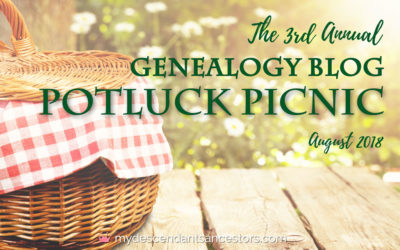My theme choice is a look at books
on my family history bookshelf.
How to be a Victorian" by Ruth Goodman, Published by the Penguin Group, 2013

Do you want to find out what life was really like for your ancestors living in Victorian Britain?
The book gives us an insight into how Victorians
lived their daily lives, whether they be rich of poor, town or country
based. Material has been gathered from contemporary accounts, letters, diaries, newspapers and magazines.
The
author takes an innovative approach by following a typical routine day
in all its detail from "Waking Up" in the Morning to Evening "Behind the Bedroom Door."
Of added interest are the descriptions by the author of her attempts to experience some aspects of Victorian life - such as doing the laundry, trying out Victorian recipes, heating the home or struggling into the multi layers of dress.
We often can gather information quite easily on the life of the upper classes, but the emphasis here is very much on the day to day lives of ordinary people - in other words like most of our ancestors. Fascinating, readable and informative.
In
many ways the book complements the first book, but takes us into the 20th century. It
presents a social history exploring the changing role of women of all
ages and social backgrounds, and relates very much to the lives of our mothers, grandmothers., or great grandmothers. The pithy chapter titles caught my attention, covering life indoors, educating daughters, a suitable job, health issues, the good mother, thinking of England (sex and marriage), and changing fashion.
Fighting on the Home Front: the legacy of women in World War One, by Kate Adie.
Hodder & Stoughton, 2013.

A vivid, compelling, readable account of how during the First World War, women came out of the shadows of their domestic lives to play a a part in the fight for victory - as munitionettes (a term new to me), as land girls, nurses, nursing, lady police, in fund raising, charity work, and entertainment, plus providing auxiliary support for the armed forces.
Written by Kate Adie, former BBC war correspondence, she draws on her family in Sunderland for many of her anecdotes and concludes with an assessment on the achievements of these pioneering women and their legacy for the future.
Points that struck me: -

Hodder & Stoughton, 2013.

A vivid, compelling, readable account of how during the First World War, women came out of the shadows of their domestic lives to play a a part in the fight for victory - as munitionettes (a term new to me), as land girls, nurses, nursing, lady police, in fund raising, charity work, and entertainment, plus providing auxiliary support for the armed forces.
Written by Kate Adie, former BBC war correspondence, she draws on her family in Sunderland for many of her anecdotes and concludes with an assessment on the achievements of these pioneering women and their legacy for the future.
Points that struck me: -
- That on the outbreak of war, there was already an “army” of society women with influential connections, who were experienced in organization and fund raising for charitable causes androse to the challenge of providing "comforts" for troops.
- New to me the role of Flora Sanders from
Poppleton, York (where I lived for four years), as a serving soldier in
the Serbian Army.
- The rise of the Women’s Institute in breaking down
the isolation of farm workers’ wives and extending their horizons.
- The
petty, patronising focus (e.g. on dress) adopted by the military chiefs on
women taking on auxiliary roles.
- The intransigence of the Church of
England to granting women increased involvement in church life, unlike many of the non-=conformist churches. it was
to be 80 years before the first women priests were ordained in 1994.
Local Histories - too numerous to mention individually.
Again
these are invaluable in putting our ancestors lives in the wide r
context of where they lived. My "ancestral" home is Poulton-le-Fylde
near Blackpool, Lancashire and I try to buy every local history book on
the small town. I have discovered photographs of my great uncle in a
local football team, early class photographs of where my aunt and
mother went to school, and the terraced house (since demolishes), where
my great grandmother raised a large family of eight sons, one
daughter and one granddaughter.
What books have inspired your family history?
***********

Love this post! Then again, I am a sucker for books. As for the local histories, your story could be my story. I've found pictures and information about ancestors in more than one local history book.
ReplyDeleteI have visited a Victoria living museum town in England including a Victorian school. The Victorian teacher who ran a class in the museum was very strict.
ReplyDeleteI've read Fighting on the Home Front and I agree, it's an excellent and compelling account of life for women during the war. Thanks for pointing out the two books on Victorian living and women in the 20th century! Going to have to add those to my to-read list!
ReplyDeleteI love this post! I'm a genealogist and a librarian, so naturally, my bookshelves are bursting with books relating to family history! Local histories are by far my favorite. They really give me an idea of what life was like in a particular area, and often have great photos and maps that sometimes include my family. Thanks for this post!
ReplyDeleteThank you all for sharing your love of books on my post. I enjoyed reading your comments.
ReplyDelete